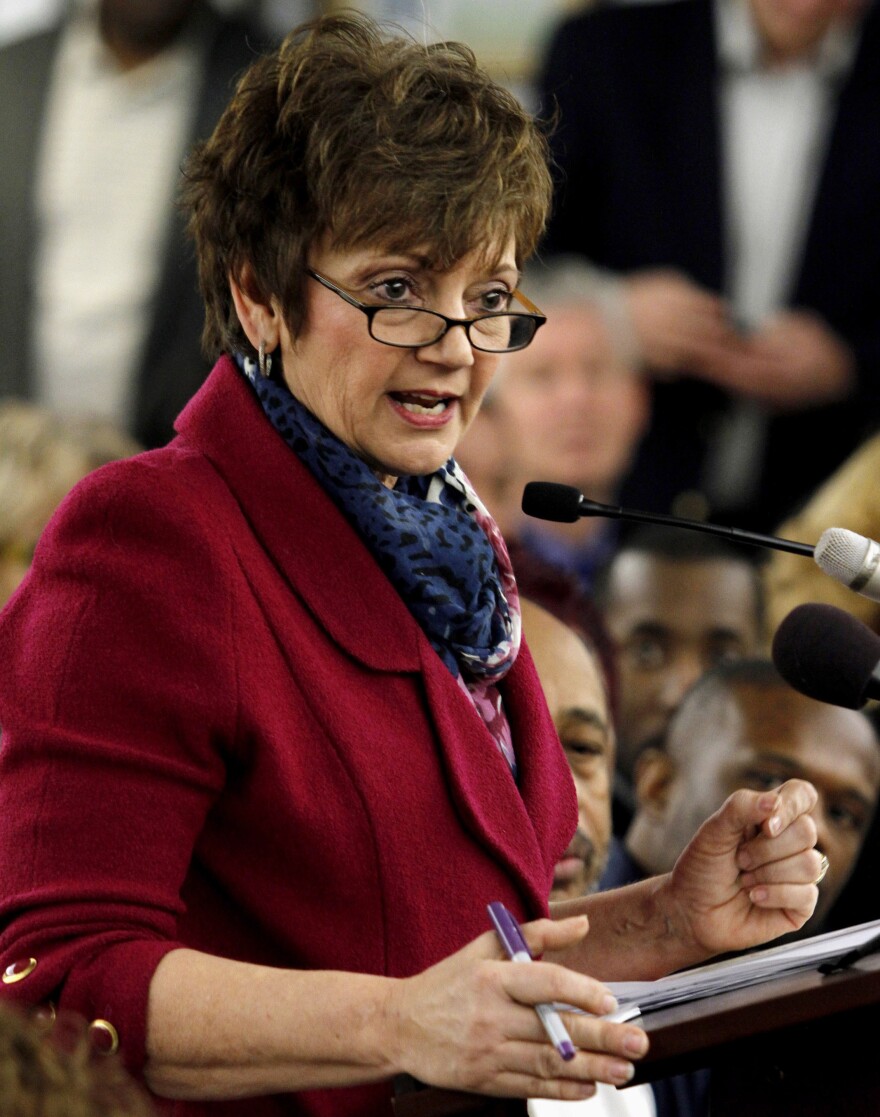One of the most important events in the national gun violence debate will take place Tuesday — in the snows of Chicago, a thousand miles from Newtown, Conn., or Washington, D.C.
That's where Democratic voters will choose their nominee to replace Jesse Jackson Jr. Because the district is so heavily Democratic, the winner will almost certainly be sworn in at the Capitol following the April general election.

Chicago is also where the billionaire mayor of New York City, Michael Bloomberg, is flexing the muscle of his gun control superPAC by spending, as of late Friday, $2.2 million on the race. For those keeping score, that's four times what the top five candidates' campaigns have spent — combined. Most of that money has gone to attack former Rep. Debbie Halvorson, with the rest building up Robin Kelly, the former administrator of Cook County and a former state representative.
Because Halvorson is the only white candidate in the primary, originally facing nearly two dozen African-Americans, there was a reasonable chance she would win a slim plurality with the black vote splintering so many different ways.
In fact, polls early on showed her leading — but that was before Bloomberg's Independence USA PAC unleashed a pair of TV ads and a series of mailers against her and her positions on guns. Now, days ahead of the vote, Kelly appears to be in the lead, with a pair of other top contenders having dropped out.
Bloomberg has been quite open about his desire to push stronger gun laws in the country, particularly after the December elementary school massacre in Newtown. Asked this week about involving himself in the Illinois race, he answered: "I'm part of the public and I happen to have some money. That's what I am trying to do with my money — trying to get us some sensible gun laws."
Bloomberg is worth some $22 billion. Meaning that if he's serious about pursuing this cause, he by himself could serve as an enormous counterweight against what until now has been the only major player on the issue — the National Rifle Association.

In the 2012 elections, for example, the NRA spent a total of $16 million on independent expenditures in federal races, according to Federal Election Commission records. Of that, $12 million went to attack President Obama, and less than $1 million was sprinkled across 82 House races.
Compare that to the $8 million that Bloomberg spent in just five House races, several months beforeNewtown. That money helped defeat two pro-gun representatives, and made competitive races out of a couple of others.
Perhaps most intriguing in Bloomberg's campaign against Halvorson has been how the ads have taken the NRA head-on (Narrator: "No wonder Halvorson received an A+ rating from the NRA, the special interest lobby against effective background checks ..."). This turns what has historically been an asset into a liability, perhaps a fertile strategy, given recent polling that shows falling approval ratings for the gun rights group.
If Halvorson loses Tuesday, and particularly if she loses convincingly, look for congressional candidates in other districts to start eyeing Bloomberg and his superPAC just as nervously as they've grown accustomed to eyeing the NRA.
S.V. Dáte is the congressional editor on NPR's Washington Desk.
Copyright 2020 NPR. To see more, visit https://www.npr.org. 9(MDAwMTM1NDgzMDEyMzg2MDcwMzJjODJiYQ004))


